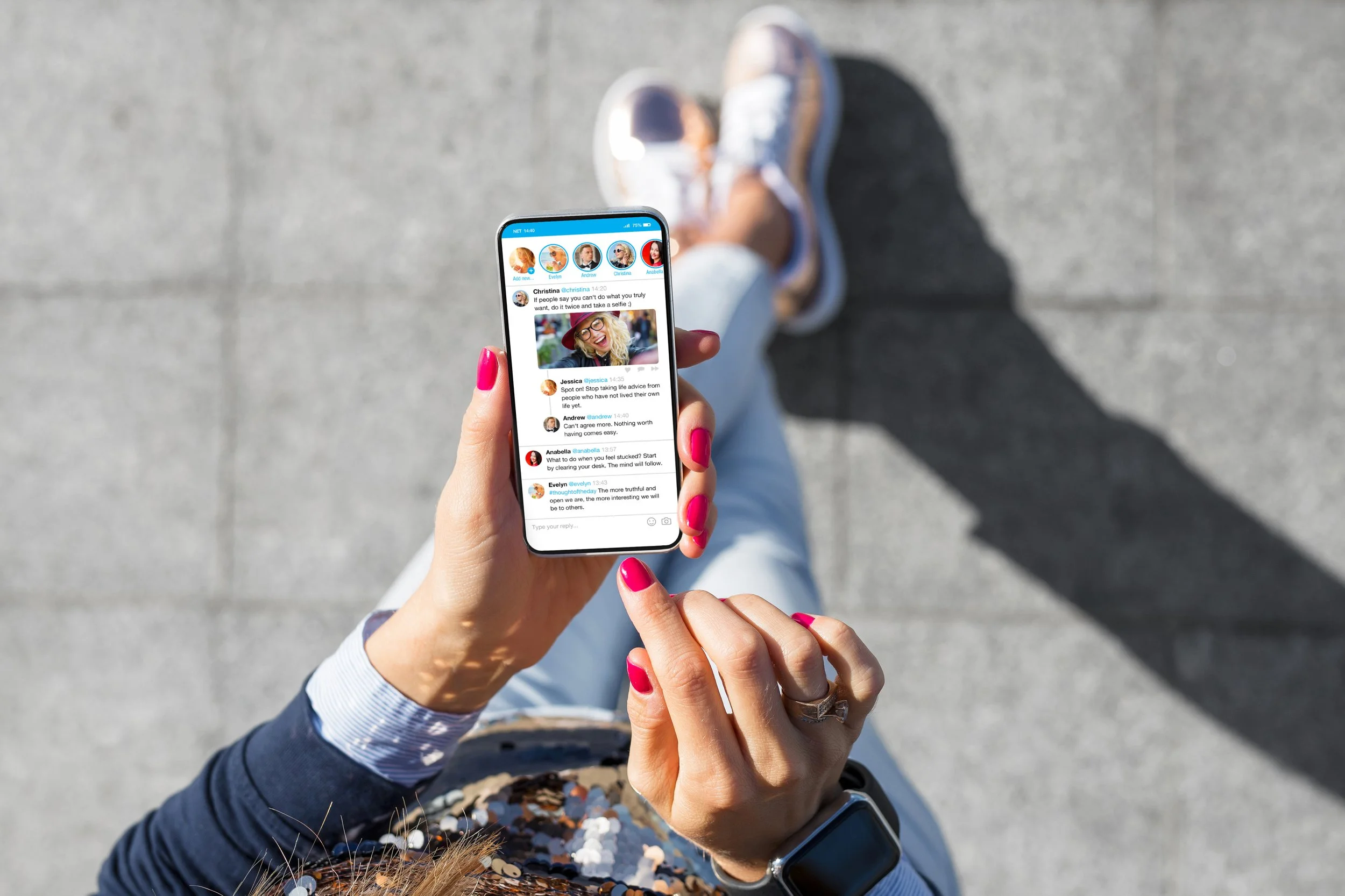The Man Who Killed Social Media Declares It Dead
Image licensed via Adobe Stock
Mark Zuckerberg says social media is over. Oh, the irony. In a recent interview highlighted by The New Yorker, the CEO of Meta shared that platforms like Facebook and Instagram aren’t really social anymore — they’ve become entertainment channels. Apparently, it’s all about creators, not friends. Recommendations, not relationships. Content, not conversation. Erm. I’ve got news for you, love: it’s your fault.
It’s like the fire starter calmly announcing the house is burning down. Cue the eye roll. To hear Zuckerberg talk about the shift as if it’s something that just happened, not the direct result of years of engineering our attention, monetising our friendships, and turning genuine interaction into a product, is almost impressive in its detachment. You built the machine, Mark. You fed it. You profited from it. Now you're saying it's not what it used to be?
Of course it’s not. But I suppose it’s far easier to blame something else than take a long, hard look in the mirror — right, Mark?
We used to use these platforms to catch up with mates, post daft holiday snaps, and share ideas. Now it’s reels, ads, strangers trying to go viral, and accounts we don’t even remember following. The "social" part was quietly phased out. Nudged aside by an algorithm that couldn’t care less about connection, only how long it can keep you scrolling.
And for creatives? We were once the people bringing colour and curiosity to the internet. Now we’re "creators”, forced to churn out content on an endless treadmill, bending to the whims of engagement metrics, shadow bans, and reach drops. We’re told to “build a brand”, “find our voice”, and “show up consistently”, like that’s the only way to survive. It’s exhausting. And frankly, many of us have moved on.
So when Zuckerberg says it’s all changed, he’s not wrong. But it feels a little rich coming from the person who destroyed it.
Of those who stay, they’re left picking up the pieces, still trying to figure out how to make it work. But they’re burned out. Disconnected. Wondering how we got from sharing silly memes with friends to doomscrolling through strangers lip-syncing in their kitchens. It’s no surprise people are quietly leaving social media.
But here's the thing: maybe this really is the end of that kind of social media. And maybe that’s not such a bad thing. A lot of what I hear from my smart tech friends (who have never been on these platforms) is that social media isn’t dead; it’s shifting.
And what’s emerging in its place are newsletters, forums, blogs, and communities. It feels slower. More intentional. More human. Less about growth-hacking, and more about actual growth. And while these spaces might not be as shiny or addictive, they’re real. They’re where the good stuff is starting to happen again.
On Creative Boom, we’ve pretty much automated our articles to run via Buffer onto X, BlueSky, and Threads. We manually post to LinkedIn. We also add our own updates to Instagram. But it takes up way less of our time than before, and we’ve found a good rhythm — making social media work hard for us, not the other way around. We’re not playing algorithm games or chasing likes. We just make the best of it and don’t sweat referred traffic or engagement anymore.
The whole marketing landscape for our magazine has changed. Thank goodness we invested in our organic traffic and owned media. As I’ve said before, social networks are just rented spaces; they can change the goalposts at any time. You end up chasing rainbows. And you never know if what you’re doing is actually working. At least with a newsletter you’re in charge of your own content.
And hey, since we launched our private community, The Studio, we’ve seen some fantastic progress there too. Certainly in terms of rebuilding our online community. We’re only three months old and fast approaching 4,000 members. Imagine that! A private space away from algorithms, AI, and — most importantly — Thai-fighting billionaires with underground lairs.
So yes, social media might be “over” in the way Zuckerberg means. But connection? Creativity? The stuff that made the internet magical in the first place? That’s very much still alive — just not where the algorithm told us to look.
Maybe, finally, we’re all ready to build something better.
